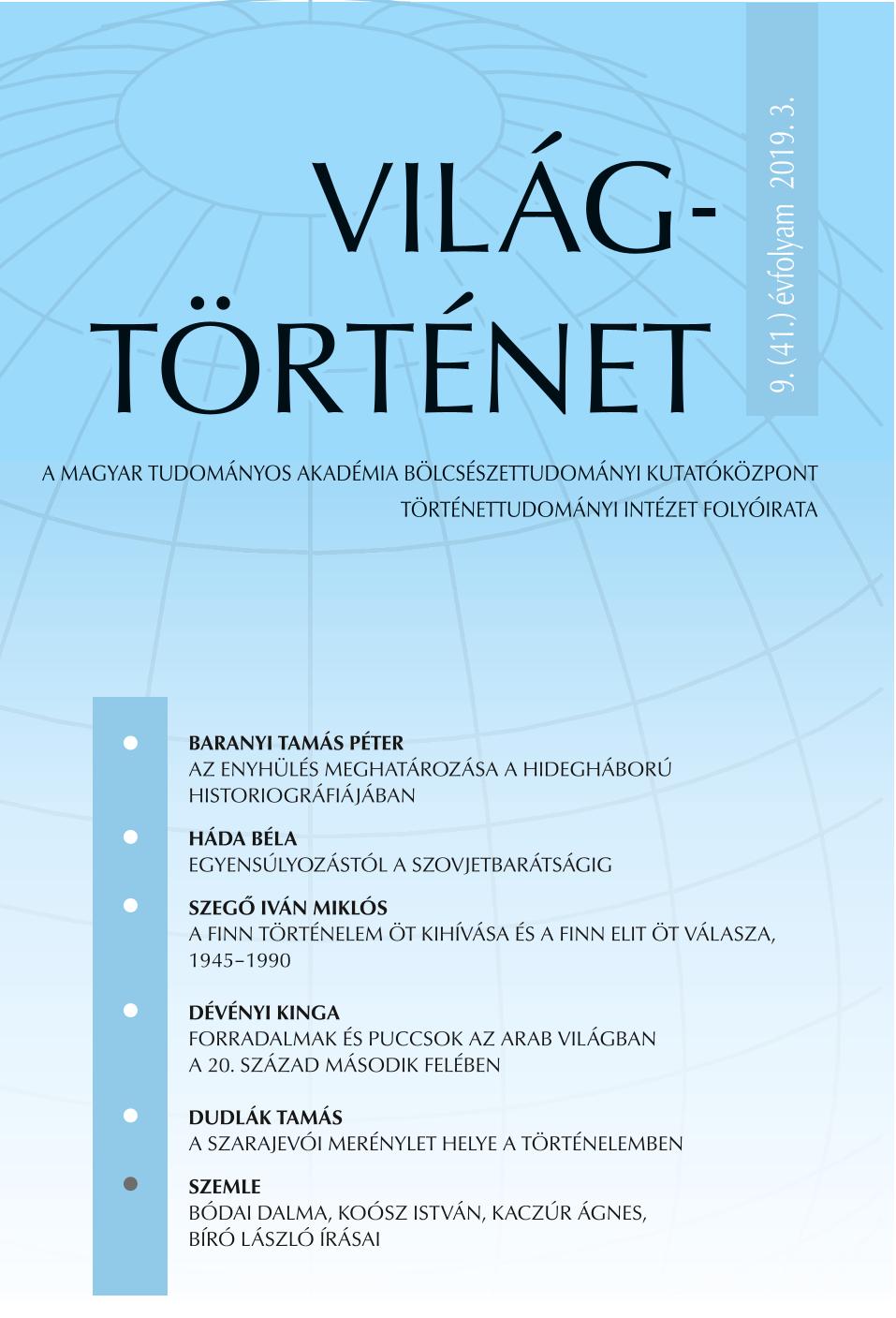A szarajevói merénylet helye a történelemben. Az első világháború okainak kontrafaktuális elemzése
The Historical Role of the Assassination at Sarajevo. A Counterfactual Analysis of the Causes of World War I
Author(s): Tamás DudlákSubject(s): Pre-WW I & WW I (1900 -1919)
Published by: Magyar Tudományos Akadémia Bölcsészettudományi Kutatóközpont Történettudományi Intézet
Summary/Abstract: This paper tries to define the role of Franz Ferdinand’s assassination (June 28, 1914) related to other possible micro and macro causes of World War I. The analysis relies on the counterfactual method that utilizes the oftentimes neglected potential of the “what if” question and highlights the alternatives in the decision-making process of an actor, thus broadening the perspective of the individual and making connection between micro and macro levels. Among the causes of the war, Franz Ferdinand’s death can be regarded as an important, but not indispensable factor. Based on the counterfactual method, I admit the possibility of alternative ways in every decision-making process and the ability of changing the flow of events and opposing the constraining nature of the structure (macro level causes that make the outbreak of war possible). This alternative way of thinking is what the leaderships of the pre-war societies lacked: after June 28, there was no individual having enough political power to turn the tide against the Zeitgeist (the macro level).
Journal: Világtörténet
- Issue Year: 2019
- Issue No: 3
- Page Range: 467-484
- Page Count: 18
- Language: Hungarian

